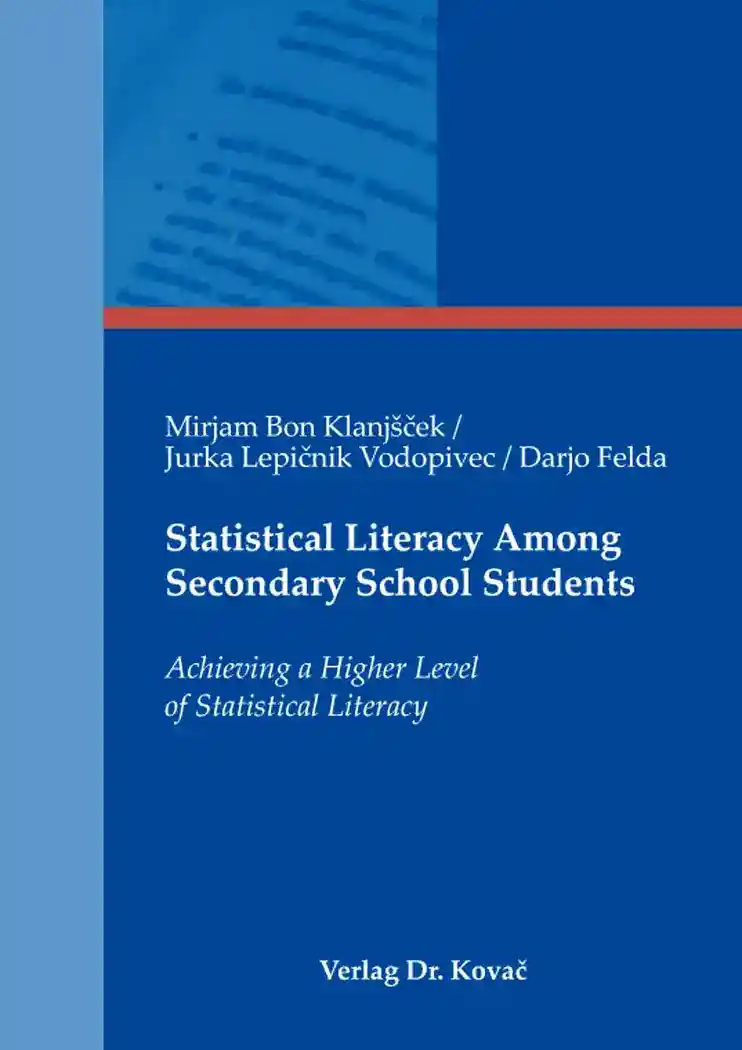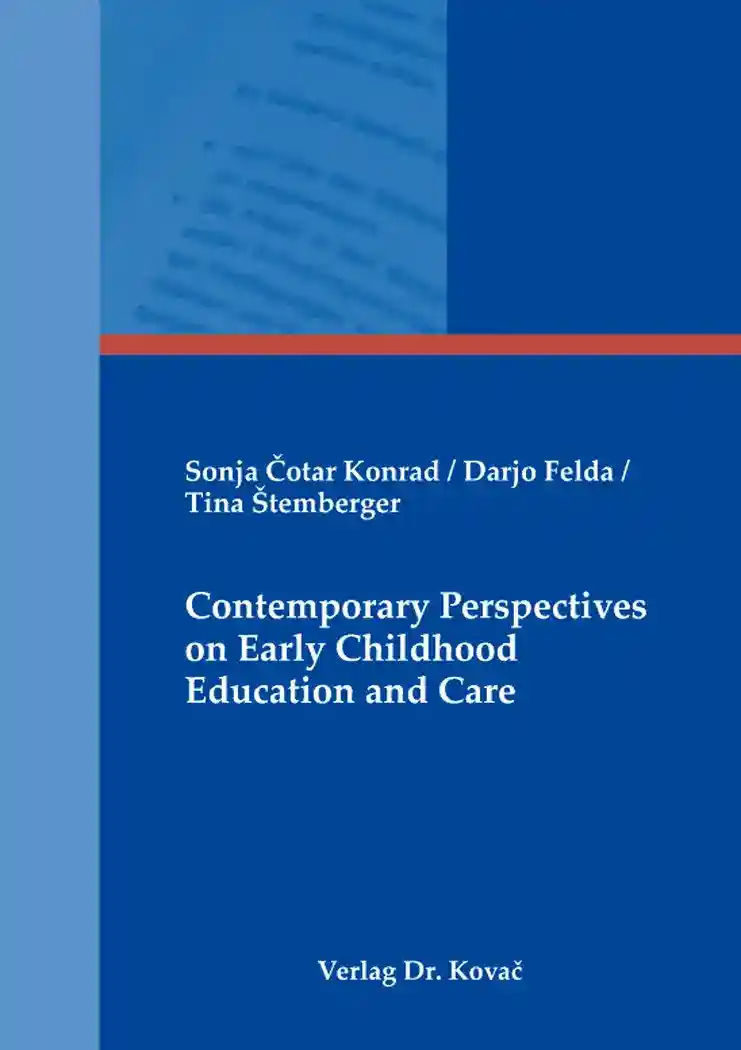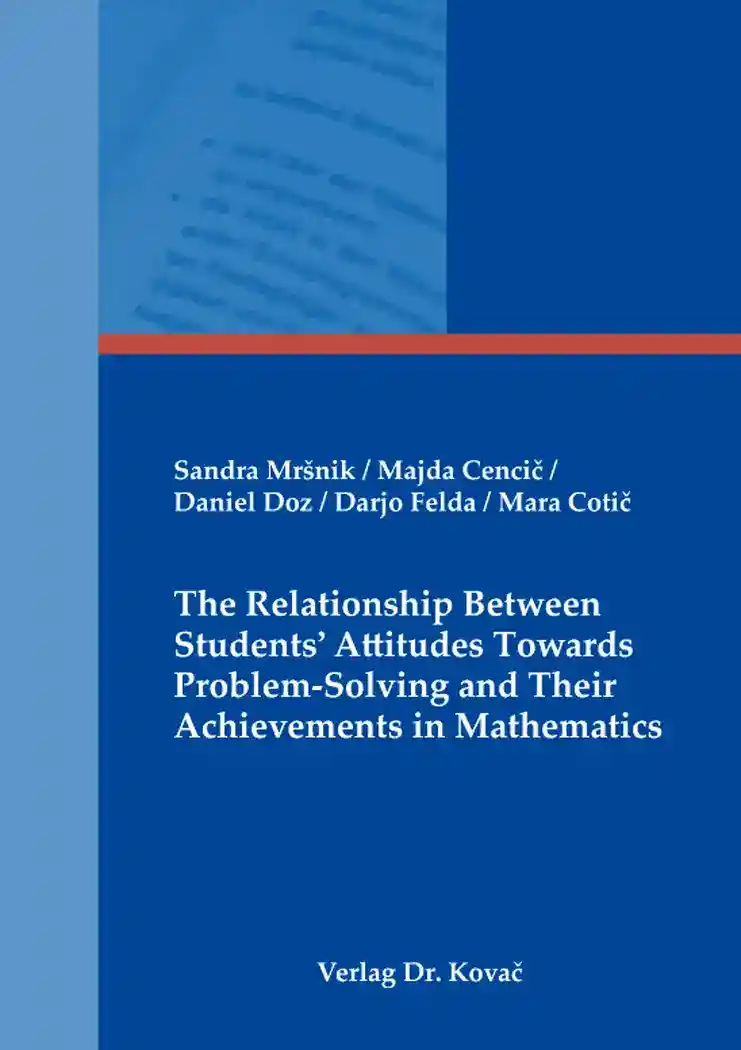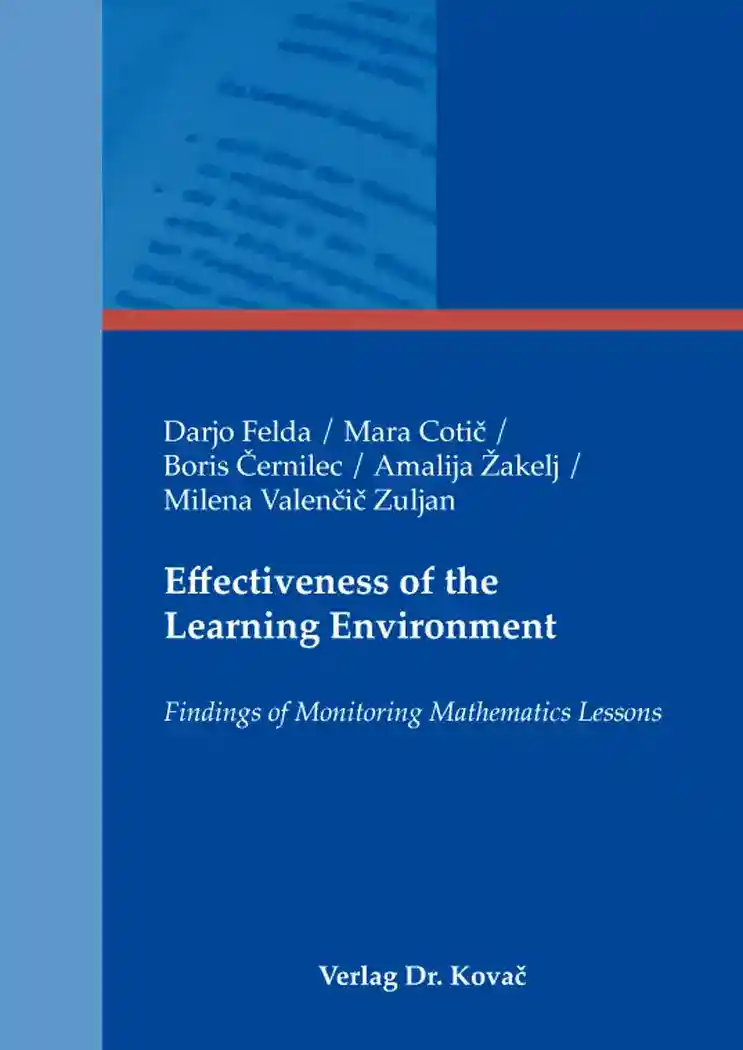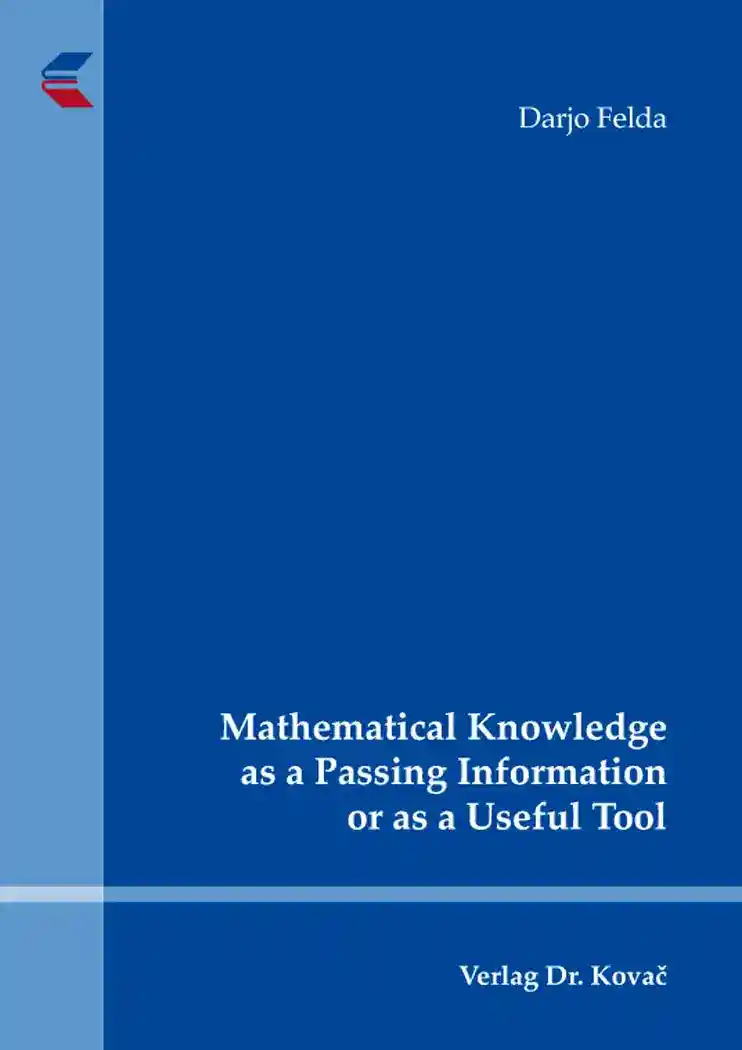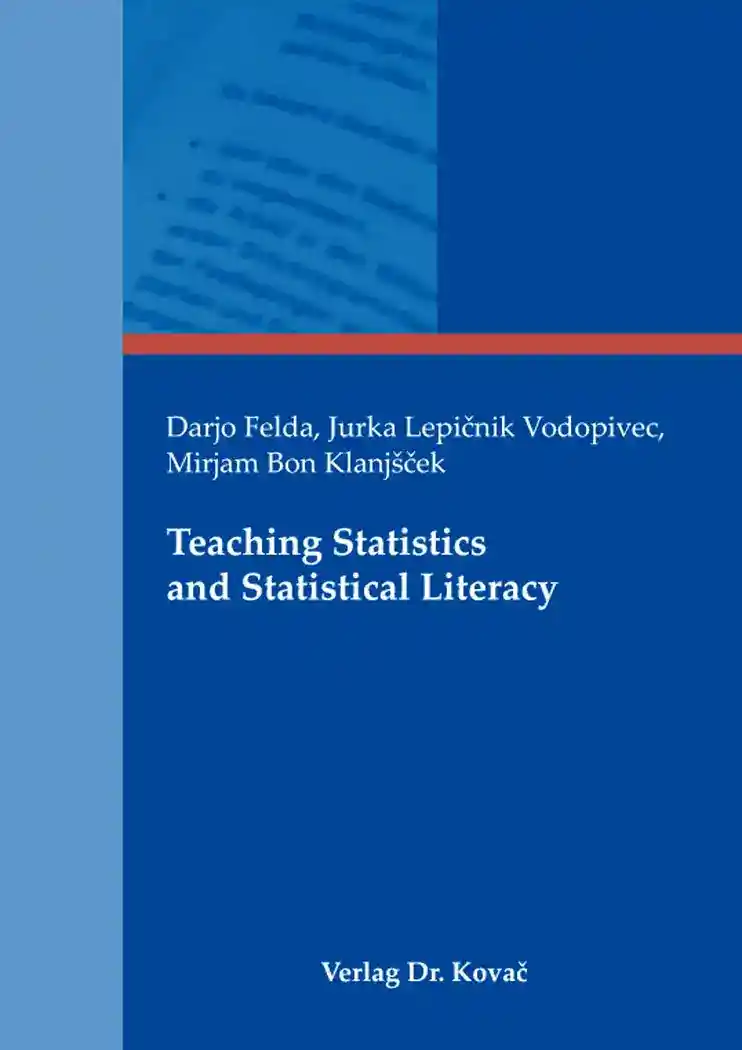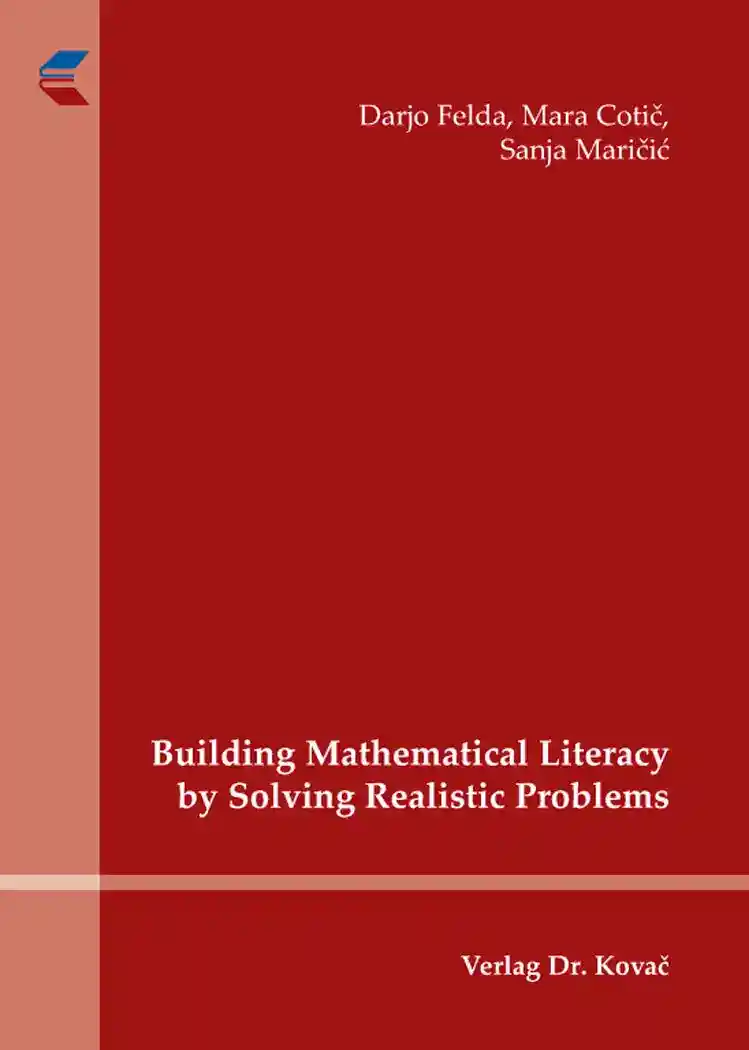Mirjam Bon Klanjšček / Jurka Lepičnik Vodopivec / Darjo FeldaStatistical Literacy Among Secondary School Students
Achieving a Higher Level of Statistical Literacy
Studien zur Schulpädagogik, Band 86
Hamburg 2018, 112 Seiten
ISBN 978-3-339-10356-7 (Print) |ISBN 978-3-339-10357-4 (eBook)
Zum Inhalt
The statistical education should be in step with modern didactic trends, which recommend the use of statistics in relation to everyday life and thus develop and improve statistical literacy. But as statistics is made part of mathematics instruction, solving statistical problems tends to be dominated by mathematical thinking, emphasizing mathematical models, methods and procedures, with the techniques being more important than the statistical problem itself. There is not enough emphasis placed on understanding the problems or on a critical interpretation of the results – it seems that mathematics becomes an obstacle to understanding statistical problems, and such teaching certainly does not help improve statistical literacy.
When preparing for our research study of mathematics instruction, within which statistics is taught, we discovered that grammar schools devote too little attention to statistical literacy, although there is some emphasis on the links between statistics and the real world. Doing statistical tasks procedurally and revising them with the use of procedures that students learn by heart often turns out to be less than successful, because students do not understand statistical concepts and are not aware of the purpose and effectiveness of the procedures.
So we developed an approach that should enable students to make sense and be aware of statistical concepts during the procedure of solving statistical problems or resolving statistical problem situations. Using realistic problems taken from real life, students develop a critical attitude towards information they gain, create new strategies of solving statistical problems, develop abilities to interpret results and critical attitudes towards interpreting results, thereby developing and improving statistical literacy itself.
The study we conducted showed that students’ knowledge is deeper if they participate in creating the knowledge, as in so doing they relate it logically to their prior knowledge. The problems taken from students’ everyday lives add to a more genuine relation of a problem situation to the students’ critical thinking when looking for a suitable solution strategy. When working towards solutions, students include their non-formal knowledge and previously gained experiences.
Schlagworte
Critical interpretationDidacticsDidaktikErziehungswissenschaftKritische InterpretationMathematicsMathematics classesMathematikReal-life situationRealistic contextSecondary schoolStatistical educationStatistical literacyStatistical thinkingStatisticsStatistikStatistikunterrichtStatistisches DenkenWeiterführende SchuleIhr Werk im Verlag Dr. Kovač

Möchten Sie Ihre wissenschaftliche Arbeit publizieren? Erfahren Sie mehr über unsere günstigen Konditionen und unseren Service für Autorinnen und Autoren.
Weitere Bücher der Autoren
Contemporary Perspectives on Early Childhood Education and Care
Hamburg 2023, ISBN 978-3-339-13530-8 (Print) |ISBN 978-3-339-13531-5 (eBook)
Hamburg 2022, ISBN 978-3-339-13074-7 (Print) |ISBN 978-3-339-13075-4 (eBook)
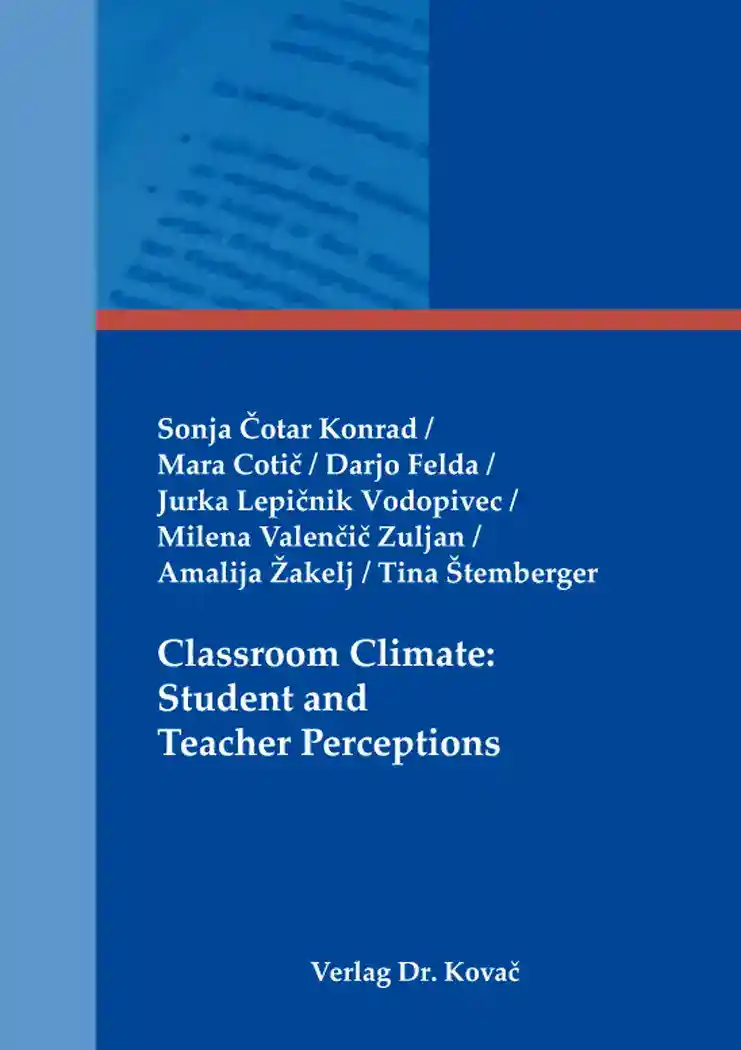 Sonja Čotar Konrad / Mara Cotič / Darjo Felda / Jurka Lepičnik Vodopivec / Milena Valenčič Zuljan / Amalija Žakelj / Tina Štemberger
Sonja Čotar Konrad / Mara Cotič / Darjo Felda / Jurka Lepičnik Vodopivec / Milena Valenčič Zuljan / Amalija Žakelj / Tina ŠtembergerClassroom Climate: Student and Teacher Perceptions
Hamburg 2021, ISBN 978-3-339-12570-5 (Print) |ISBN 978-3-339-12571-2 (eBook)
Effectiveness of the Learning Environment
Findings of Monitoring Mathematics Lessons
Hamburg 2020, ISBN 978-3-339-11730-4 (Print) |ISBN 978-3-339-11731-1 (eBook)
Mathematical Knowledge as a Passing Information or as a Useful Tool
Hamburg 2019, ISBN 978-3-339-10958-3 (Print) |ISBN 978-3-339-10959-0 (eBook)
Teaching Statistics and Statistical Literacy
Hamburg 2017, ISBN 978-3-8300-9648-1 (Print) |ISBN 978-3-339-09648-7 (eBook)
Building Mathematical Literacy by Solving Realistic Problems
Hamburg 2016, ISBN 978-3-8300-9105-9 (Print) |ISBN 978-3-339-09105-5 (eBook)
